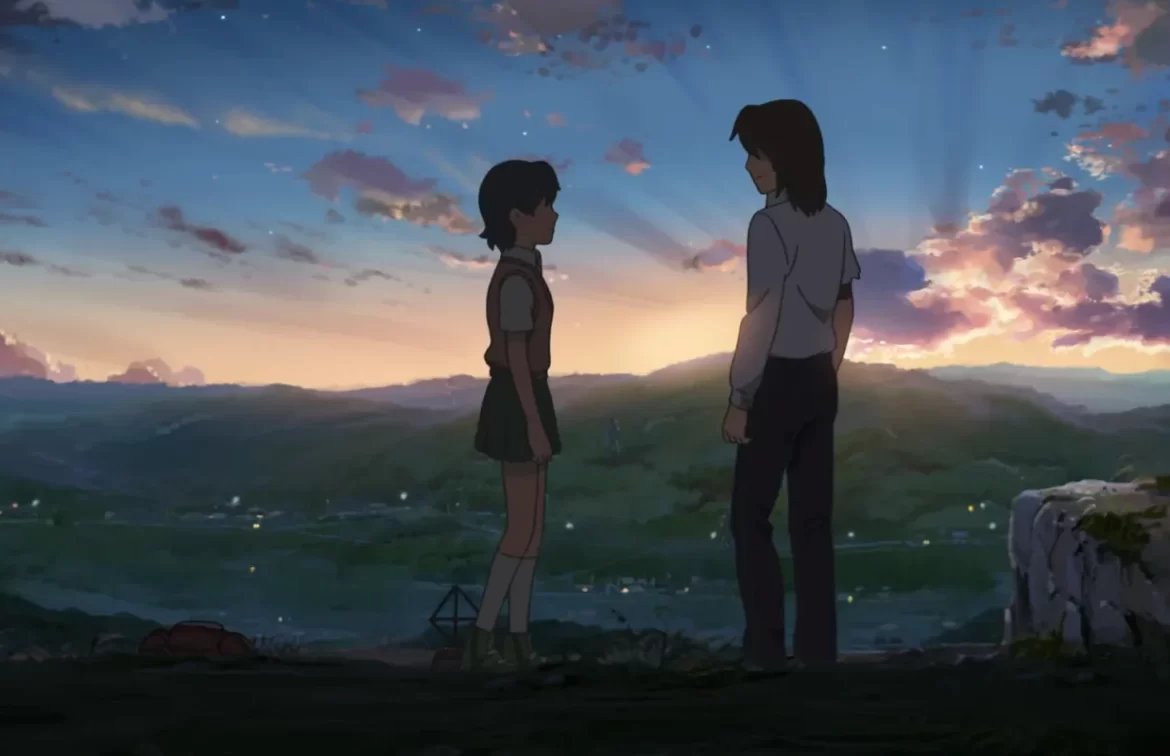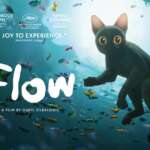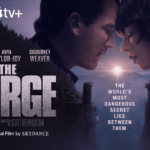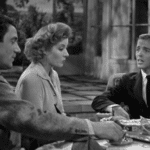Makoto Shinkai’s ‘Children Who Chase Lost Voices’ tells the tale of a young girl named Manna whose favorite past time is to use a crystal powered radio to try to listen to voices from far beyond. One day she hears a pleasent and distinct song that resonates with her. Shortly after that she encounters an otherworldly young man (literally as she’d find out), named Shun who saves her from a strange being from his home world of Agartha. Shun disappears soon after and with the prodding of a new mysterious teacher, a man named Ryūji Morisaki, who spoke of Agartha as having a portal to the realm of the dead. Together they set off to Agartha to fulfill their own personal journeys, while meeting new companions, and new foes, along the way.
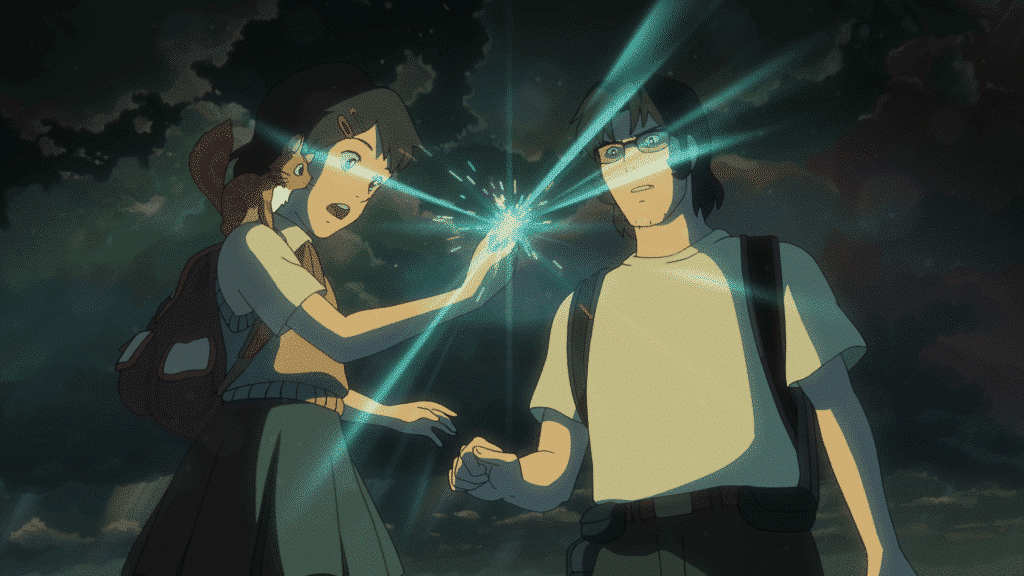
Children Who Chase Lost Voices (Source: GKIDS)
‘Children Who Chase Lost Voices’ had been a blindspot for me in Shinkai’s ouvre for sometime, and I’ve heard it very rarely mentioned even on Shinkai sub-redits. It’s hard for me to know how popular this film is in Japan, though I imagine it’s at least somewhat slept on, but to see it was passed over in America is startling considering it wears its Miyazakian influences on its sleeve, and for the most part it does so incredibly well.
Perhaps Shinkai just wasn’t marketed correctly over here yet (which I’d argue is true with nearly all of his films), but I think too even by 2011 there’d been an understanding of Shinkai’s melancholy style that meant this film just on its surface seemed so non-Shinkai that folks may have been confused. I certainly gleaned really early on, especially with the introduction of the mysterious creature we’d come to know as a Quetzalcoatl, that this was Shinkai’s answer or perhaps homage to Miyazaki. (Shinkai has been called the next Miyazaki, and though he himself appreciates and cites Miyazaki as an influence, he often deflects the comparison with humility.) The world of Agartha too only further cemented this as a non-traditional Shinkai, as Shinkai has often incorporated fantasy elements, but never unlike Miyazaki entered an world so uniquely other as he does in this film.
While I came to Shinkai for the melancholy – and he does get there in this film, just not how you might expect – I appreciated his branching out and trying to convey new stories especially in this period of his filmmaking. What was perhaps most jarring, and it could be debated perhaps to the extent this is true, but at least for our heroine the plot of love isn’t nearly as strong a throughline as it is nearly all of Shinkai’s other films. Instead we’re presented with a very hero’s hourney approach that ultimately feels like therapy for all characters involved, including Morisaki who years on is still reeling from the loss of his wife. This introduction of loss is what remains most disntinctly ‘Shinkai-esque’, as he so often explores the distance between characters, and what greater distance is there than that between the living and the dead? In this way too, it is reminiscent of a darker version of the mom’s story in Totoro, whose sickness in My Neighbor Totoro always lingers even through the kids’ fantasy adventures.
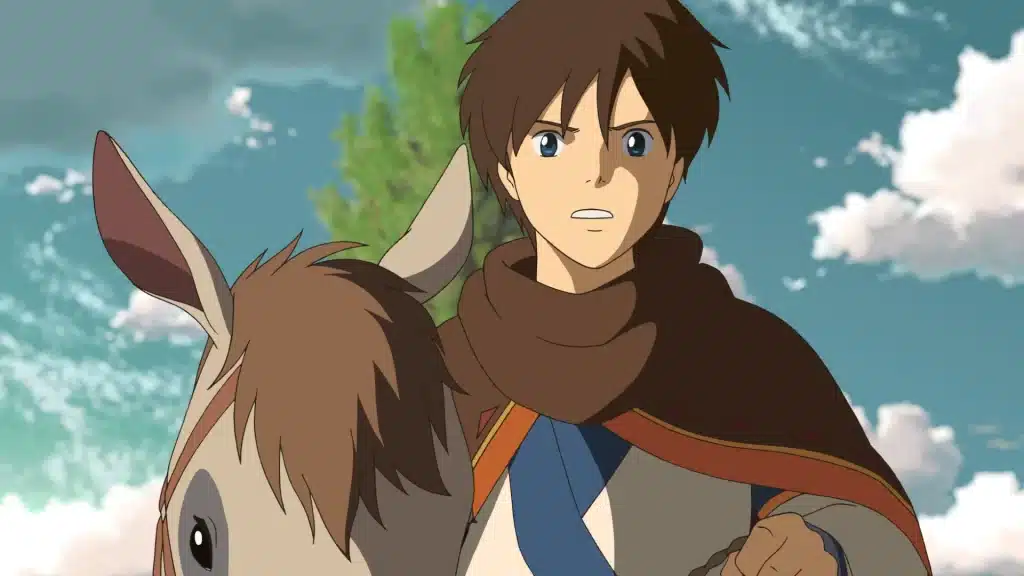
Children Who Chase Lost Voices (Source: GKIDS)
If there’s any weakness to Children Who Chase Lost Voices, its perhaps that Shinkai simply tries too much. By the end of the film when you get the payoff for the characters journeys, they don’t all resonate equally because some have been given significantly more time than others. Likewise Shinkai in the journey throws perhaps even too many Miyazaki elements (Castle in the Sky is the clearest reference point), which visually looks compelling, but convolutes elements of the film even further. That said this is still a strong entry in Shinkai’s canon, and it’s regretable it hasn’t received more love. Though Shinkai’s really come into his own as a film maker (and I’d argue he was strong out of the gates), its exciting to see a director take on a new challenge such as this, come away with an incredible film despite some flaws, and deliver a powerful story that has stayed with me and undoubtedly will for sometime.
